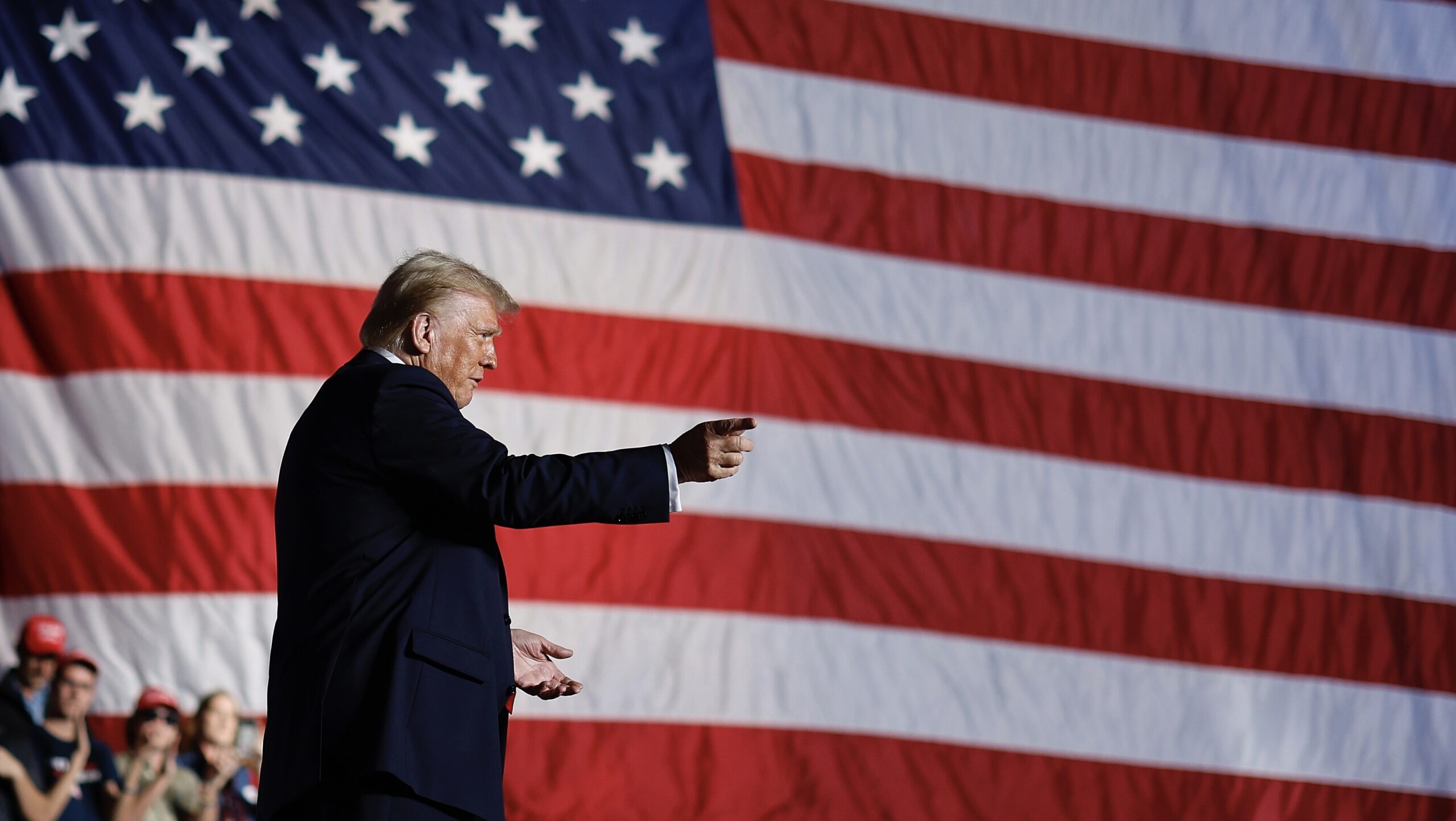Trump 2.0: The global market shake-up you can’t afford to ignore

Which way will global markets point in the age of Trump 2.0? Pic via Getty Images
As Donald Trump’s second term in the Oval Office looms, global markets are preparing for a seismic shift. With his economic playbook already well-known – tax cuts, deregulation, and a return to protectionist policies – the question is not if the markets will react, but how.
The initial surge of optimism from Trump’s return will undoubtedly spark rallies in some sectors. But as investors have seen before, the long-term effects of his policies are often unpredictable, and the broader market could face serious turbulence.
In this next phase, we’ll see both opportunities and risks that could significantly reshape financial landscapes from New York to Sydney and beyond.
Trump’s first term saw corporate tax cuts that propelled markets higher, but that initial euphoria may give way to rising inflationary pressures in his second term.
A massive infrastructure plan (US$1.5 trillion), which he’s promised to reinvest in, will undoubtedly stoke demand in the economy – creating jobs, driving up wages and putting more money into consumers’ pockets. On the surface, this should be good for business, right? Well, not so fast.
Inflation will likely creep higher, probably reaching the 4-5% range by mid-2025, I believe. This will put upward pressure on prices, hitting consumers and businesses alike. Inflation isn’t just a theoretical threat – it is a real concern that can weigh heavily on consumer spending and business operations, as costs rise across the board.
And with the Federal Reserve already walking a fine line, rising prices are likely to prompt further rate hikes, making borrowing more expensive and increasing market volatility.
For equities, the impact could be mixed.
While industries like energy, infrastructure, and tech will benefit from deregulation and a tax-friendly environment, other sectors will face more immediate challenges.
Rising inflation would push input costs higher, squeezing margins and making it more difficult for companies to meet their earnings targets. The result could be a more volatile stock market, particularly in the latter half of 2025.
A key pillar of Trump’s economic strategy is likely to be a strengthening US dollar, thanks to the combination of fiscal stimulus, rising Treasury yields and global investors seeking safety.
On paper, this sounds like a positive for the US economy, but the implications for the global market are much more complicated.
While a stronger dollar may benefit American consumers by making imports cheaper, it’ll also create significant pain for US exporters. American products will become more expensive for foreign buyers, diminishing the international competitiveness of US companies. Exporters, especially in the manufacturing and tech sectors, will likely see profit margins squeezed.
On the global stage, emerging markets will be hit hardest by a rising dollar, especially those with heavy dollar-denominated debt, such as Turkey and Argentina. As the dollar strengthens, these nations will face higher debt repayment costs, potentially leading to economic instability and market sell-offs.
In fact, the global flow of capital could see a major shift as investors flock to US assets in search of safety, leaving emerging markets vulnerable to greater volatility.
The president-elect’s commitment to protectionist trade policies, including a renewed focus on tariffs, could have an even more profound impact on global markets. Trade wars were a defining feature of his first term, and it’s unlikely that the second term will be any different.
With Europe and China already on high alert, retaliatory tariffs could trigger a new round of disruptions to global supply chains.
For US equities, this could be detrimental. Companies with significant international exposure, particularly in sectors like tech, automotive, and retail, will bear the brunt of increased trade tensions.
Higher input costs from tariffs will eat into profits, and rising consumer prices will dampen demand, leading to slower growth. Industries like tech, which rely on global supply chains, could see stock prices suffer as production costs rise.
The prospect of a protracted trade war has been largely underestimated by many market analysts, and the US market may not be prepared for the consequences. It’s not just foreign stocks that will suffer. The US companies that depend on European and Chinese markets are just as vulnerable to retaliatory tariffs, and their valuations, currently high, could quickly become a liability.
In an environment of rising inflation and interest rates, bonds might seem like a safe bet, but they could face their own set of challenges. As yields rise in response to fiscal stimulus and potential rate hikes, bonds, particularly longer-duration ones, could lose some of their appeal.
However, despite the volatility, US Treasuries remain a relatively safe asset, as demand for US government debt will continue to remain strong – especially as global capital looks for a place to weather economic storms.
Bonds could also provide a cushion for investors during periods of heightened volatility. While they won’t offer the same high returns as equities or crypto, they may be a solid option for those seeking more stability as the market braces for the turbulence that comes with Trump’s economic agenda.
If the stock market faces growing pains under Trump’s policies, there is one asset class that is likely to thrive: Bitcoin and other cryptocurrencies. With his pro-crypto stance and the rising institutional interest in digital assets, cryptocurrencies are set to receive a boost.
Trump’s presidency could be a major catalyst for Bitcoin, pushing it well beyond its current $96,000 price tag toward new all-time highs. Bitcoin has increasingly become a mainstream asset.
His support for digital currencies and regulatory clarity will accelerate adoption. Investors seeking to diversify away from traditional assets can be expected to turn to the world’s largest digital asset as an alternative store of value, further propelling its value higher in 2025.
Only time will tell exactly how it will react, but investors need to brace for a year defined by volatility, as the markets adjust to the realities of Trump’s re-election.
Nigel Green is the CEO and founder of deVere Group.
Related Topics
UNLOCK INSIGHTS
Discover the untold stories of emerging ASX stocks.
Daily news and expert analysis, it's free to subscribe.
By proceeding, you confirm you understand that we handle personal information in accordance with our Privacy Policy.








